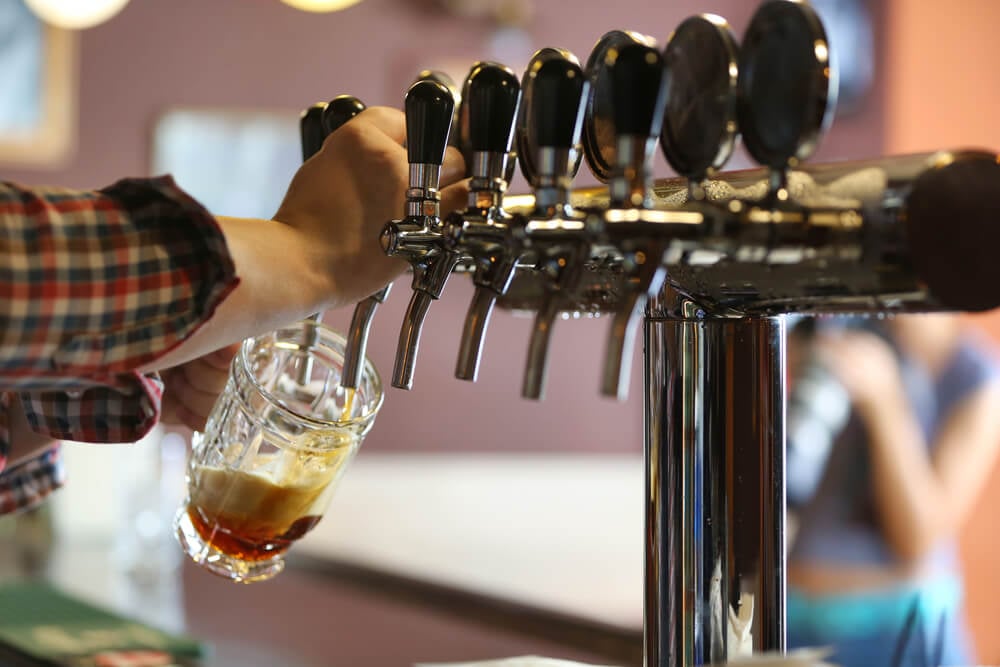The kick-off of Euro 24 is allowing the British a respite from a tedious general election campaign to indulge their twin obsessions with football and beer.
Whether it is to toast victory or drown their sorrows, fans of the England and Scotland teams are forecast to drink more than 300 million pints of beer during the month-long tournament.
That amounts to a potential £1.4 billion in takings for the UK’s struggling pubs, according to the British Beer and Pub Association (BBPA). It translates into an estimated £93 million in extra beer sales. Other estimates put potential consumption even higher.
Welcoming the impact of the football factor, BBPA chief executive Emma McClarkin said: “Whether you are supporting England or Scotland or cheering on another team, there can be no better place to watch the Euros and sharing a few refreshing beers than with friends in your local.”
The contest in Germany therefore offers a welcome boost to a struggling sector. But is it a one-off bonus or could a wider pub revival represent a rare green shoot in an arid economic landscape?
Trend of pub closures
Many are the obituaries that have been written for the British pub. But reports of the death of one of the country’s defining institutions have so far mercifully proved to be exaggerated.
The Covid lockdowns and cost of living pressures hastened a post-pandemic trend of pub closures that reduced their number from 60,800 at the turn of the century to 45,800 by the end of 2022.
While the decline reflects cultural and social changes, most beer drinkers would link it to eye-watering increases in the price of a pint. Pub-owners, from individuals to multinational brewers, point to high alcohol taxes as a factor in driving pubs out of business.
Does it matter that pubs are closing? Habits change with the times and patterns of socialising shift.
The days when an average urban working class family might head to the pub for a nightly tipple are long over
The pub nevertheless represents a unique environment for the sometimes uptight British to get together with neighbours and colleagues on relaxed common ground. Pubs still offer more bonhomie than the average coffee chain outlet.
That said, the days when an average urban working class family might head to the pub for a nightly tipple are long over. And, in more rural areas, economic pressures have seen the closure of the one common venue where locals had a chance to mix.
The picture is not uniformly bleak. In major cities, where an often youthful and well-heeled clientele spills on to the evening pavements as the weekend approaches, you could be fooled into thinking that pubs are booming.
In other urban settlings, however, locals have seen their neighbourhood pub converted into offices or upmarket flats to the profit of developers. In a few areas, neighbours have got together to save their local, either by running it themselves or having it officially designated as an asset of community value.
The pub sector is economically significant
The latest headline news is not all bad. The London brewer and pub operator Fuller’s this month reported that an 11 per cent rise in like-for-like sales had delivered 7 per cent growth in revenue to £359 million.
Much of the improvement was down to sales of food, a growing factor in pub economics that has seen operators focus on provision of meals, from the basic to the gourmet.
Just before Fuller’s numbers were published, the Dutch brewing giant Heineken said is was reopening 62 UK pubs it had closed in recent years and would put about £40 million annually into refurbishing its 2,400 pubs.
Despite its challenges, the pub sector is economically significant
Despite its challenges, the pub sector is economically significant. Research published in 2023 by the BBPA indicated pubs and beer directly and indirectly added £26 billion of gross value to the UK economy, while generating £15 billion in taxes and providing close to a million jobs. It calculated that just over £1 in £100 of consumer spending went on beer.
With a direct contribution to GVA that exceeds that of motor manufacturers or air transport operators, the sector has the clout to lobby political parties ahead of the upcoming general election.
54p duty per pint
Eighty leading pub groups and breweries this month signed an open letter in The Times to the three main contenders, demanding an immediate beer duty cut and reform of tax on business properties.
It noted that: “For every three pounds spent in a pub, one pound goes straight to the tax man,” while noting that high business rates were contributing to pub closures.
 “British beer drinkers cheering on England and Scotland pay 54p duty per pint compared to German or Spanish fans paying less than 5p”
“British beer drinkers cheering on England and Scotland pay 54p duty per pint compared to German or Spanish fans paying less than 5p”
“British beer drinkers cheering on England and Scotland pay 54p duty per pint compared to German or Spanish fans paying less than 5p,” it lamented.
The letter, penned by the BBPA’s McClarkin, said: “…a step change is required to secure its future and to promote and celebrate such an intrinsic part of British life that brings combined economic, social, and cultural value to almost every community around the country.”
She can be forgiven, in the context of Euro 24, for not also making the link between beer and British soccer hooliganism. But be on your best behaviour, lads, as you head to the pub to watch the latest match.
And, as for the players in the English and Scottish teams: give it your all! It’s not just about delivering footballing glory to your nations but also about offering a handy bonus to the pubs.